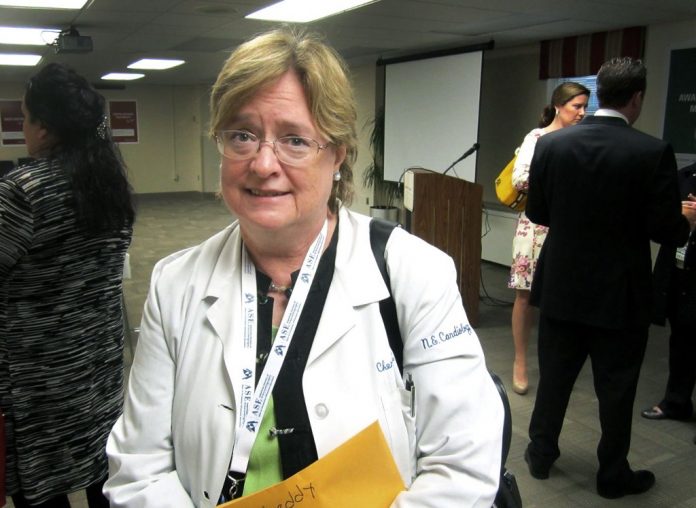Dr. Cheryl Leddy, a cardiologist at Nazareth Hospital, discussed a number of risk factors for heart attack during a recent address at a Greater Northeast Philadelphia Chamber of Commerce breakfast meeting.
Leddy spoke of aging, smoking, hypertension, obesity, diabetes, high cholesterol and symptoms of being winded after non-strenuous activities and having indigestion after only a small meal.
Of course, family history plays a role.
“If your mother and father had a heart attack,” she said, “you have a bigger risk.”
Leddy’s topic was Are You Headed for a Heart Attack? What Can You Do About It?
The doctor said family history has been linked to heart disease in the United States for decades. She pointed to autopsies of Korean War veterans ages 18 to 20. Many of them showed early signs of coronary artery disease.
Leddy did have a hopeful message. She said risks of heart attack can be lowered by adhering to a proper diet, quitting smoking, taking medicine and participating in physical activities.
“You can’t fix heredity,” she said, “but you can fix habit. You can delay the aging of your coronary arteries.”
According to the doctor, about 5.7 million Americans live with congestive heart failure. Each year, more than 277,000 people die from the disease, in which the heart is unable to pump adequate amounts of blood to meet the body’s needs.
For many years, heart-healthy proponents have recommended that Americans exercise three times a week for 30 minutes at a time.
“Wrong,” Leddy said.
The cardiologist labeled that “old thinking.” The “new thinking” is that Americans exercise five times a week.
Leddy recommends walks and bicycling. As for diet, she suggested limiting fat and sugar intake and eating more vegetables, fruits and whole-grain foods.
As part of her presentation, Leddy showed an EKG test and a heart catheterization procedure.
In response to a question about high blood pressure, she acknowledged heredity as being a factor. Still, she called for lower salt intake, exercise, weight reduction and medication.
A guest asked about the axiom, “An aspirin a day keeps the doctor away.” Leddy noted that taking aspirin has been shown to lessen the risk of colon cancer.
Overall, she added, taking a low-dosage, 81-milligram aspirin can have different impacts on people. Some absorb it well, while others have stomach issues and other side effects.
To learn more about heart and vascular care at Nazareth, call 215–335–6500. ••





